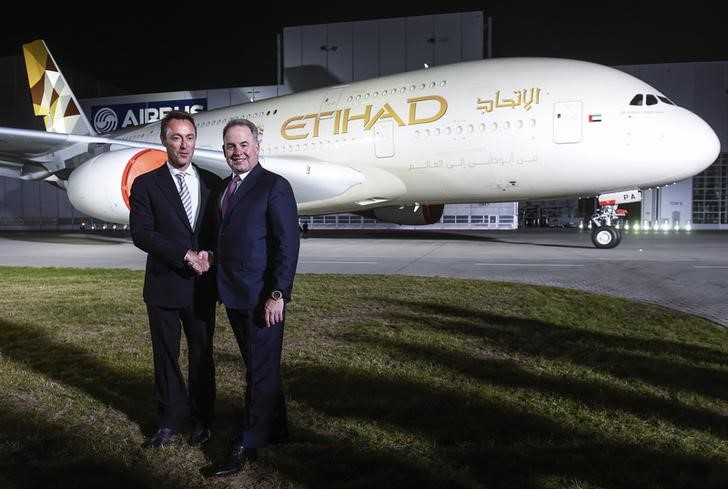By Jeffrey Dastin
WASHINGTON (Reuters) - The Obama administration said Wednesday that it is in the early stages of studying claims that Gulf airlines have received market-distorting subsidies, a review involving uncharted territory for the U.S. government.
No international trade rules or precedent by the United States exists for addressing airline subsidy claims, presenting a challenge for the administration as it determines how to proceed, a person familiar with the matter said. U.S. airlines contend that Gulf carriers can lower prices and offer more amenities on newer planes because of state subsidies.
These issues do not fall under World Trade Organization rules but rather under bilateral "Open Skies" agreements that authorize commercial flying between countries.
The agreements are silent on how to handle most subsidy claims, the source said. Yet alleged subsidies of more than $40 billion to Gulf airlines make the claim the largest that the administration has encountered and must be taken seriously, the source added.
Last week, the administration asked U.S. airlines some 20 questions about the allegations.
"The (U.S. government) interagency team did in fact ask the U.S. airlines and their consultants several technical and clarifying questions about the data and information contained in their report," U.S. Department of Transportation Press Secretary Ryan Daniels said in a statement, confirming a Reuters report.
"However, we are in the early stages of thoroughly reviewing this matter in close coordination with our interagency partners," he said.
The Obama administration has filed trade complaints on issues ranging from China's imposition of extra duties on American cars to India's ban on certain U.S. agricultural goods to allegedly protect against avian influenza.
Aviation also has been at the center of a decade-old dispute in which the World Trade Organization found that planemakers from the United States and the European Union had received illegal subsidies.
But Geneva-based watchdog's rules do not apply to air traffic rights or airline services, although it keeps these under review broadly.
Meanwhile, the dispute between U.S. and Gulf airlines has escalated.
On Tuesday, Emirates airline President Tim Clark promised to rebut the allegations, while Etihad Airways Chief Executive Officer James Hogan said the company received loans, not subsidies, from its government shareholder. Both had arranged meetings with Obama administration officials.

Delta Air Lines (N:DAL), United Airlines (N:UAL), American Airlines (O:AAL) and their unions on Wednesday called on the administration to request a freeze on additional Gulf-airline flight departures to the United States.